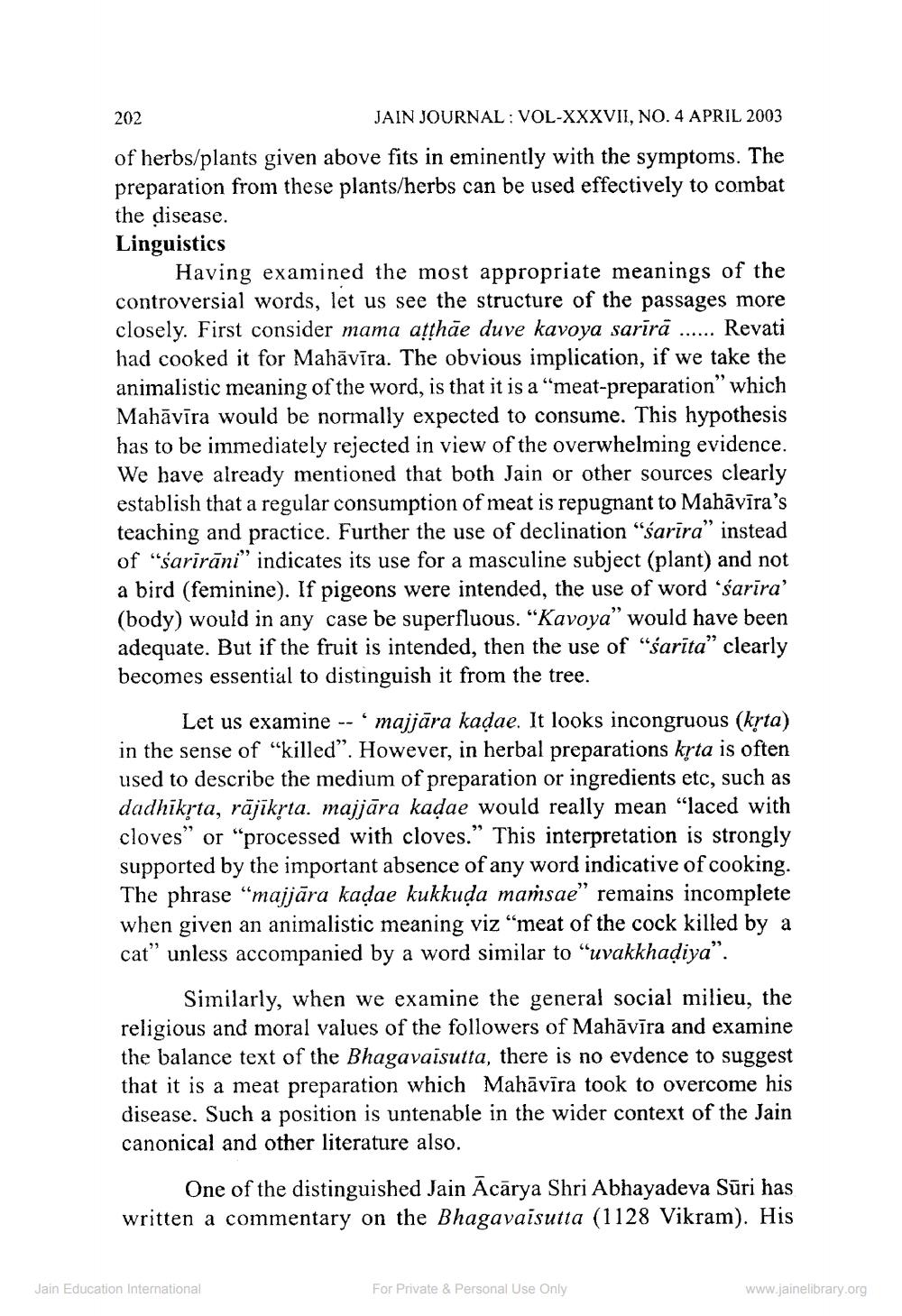________________
JAIN JOURNAL VOL-XXXVII, NO. 4 APRIL 2003
of herbs/plants given above fits in eminently with the symptoms. The preparation from these plants/herbs can be used effectively to combat the disease.
Linguistics
202
Having examined the most appropriate meanings of the controversial words, let us see the structure of the passages more closely. First consider mama aṭṭhae duve kavoya sarīrā ...... Revati had cooked it for Mahāvīra. The obvious implication, if we take the animalistic meaning of the word, is that it is a "meat-preparation" which Mahāvīra would be normally expected to consume. This hypothesis has to be immediately rejected in view of the overwhelming evidence. We have already mentioned that both Jain or other sources clearly establish that a regular consumption of meat is repugnant to Mahāvīra's teaching and practice. Further the use of declination "sarira" instead of "sarirani" indicates its use for a masculine subject (plant) and not a bird (feminine). If pigeons were intended, the use of word 'sarira' (body) would in any case be superfluous. "Kavoya" would have been adequate. But if the fruit is intended, then the use of "sarita" clearly becomes essential to distinguish it from the tree.
C
Let us examine -- majjāra kaḍae. It looks incongruous (krta) in the sense of "killed". However, in herbal preparations krta is often used to describe the medium of preparation or ingredients etc, such as dadhikṛta, räjikṛta. majjāra kaḍae would really mean "laced with cloves" or "processed with cloves." This interpretation is strongly supported by the important absence of any word indicative of cooking. The phrase "majjāra kaḍae kukkuda mamsae" remains incomplete when given an animalistic meaning viz "meat of the cock killed by a cat" unless accompanied by a word similar to "uvakkhaḍiya".
Similarly, when we examine the general social milieu, the religious and moral values of the followers of Mahāvīra and examine the balance text of the Bhagavaïsutta, there is no evdence to suggest that it is a meat preparation which Mahāvīra took to overcome his disease. Such a position is untenable in the wider context of the Jain canonical and other literature also.
One of the distinguished Jain Acārya Shri Abhayadeva Sūri has written a commentary on the Bhagavaisutta (1128 Vikram). His
Jain Education International
For Private & Personal Use Only
www.jainelibrary.org




